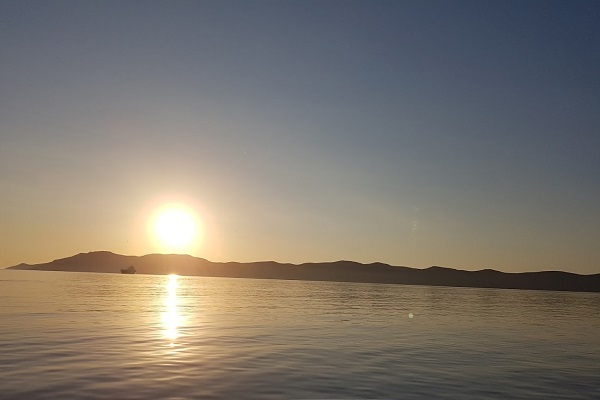The Creation of the World: The Crossroads between Theology and Science [3] (Petros Panayiotopoulos)
20 Ιουνίου 2017
[Previous post: http://bit.ly/2s928w5]
Beyond the checking of prevailing theories, which is inherent in the research process[11], and the required investigation of all alternative proposals, which will provide the answers sought for, it’s difficult to avoid the observation that one point which encourages the need for a recourse to forms which by-pass the established cosmological model of the Big Bang, has to do precisely with its close relationship with the religious version of the creation of the world. Indeed, acceptance of the beginning of the universe from a particular time is more in tune with the Biblical (if not other) narratives concerning the beginning of the world through divine will and intervention.

This is where things take a different turn. On the one hand, there’s the- probably- dominant current of the agnostic/atheistic tradition, which is followed by the majority of the scientific community. It’s inevitable that the closeness of the cosmological discoveries of the 20th century to the traditional religious concepts has brought the adherents of the agnostic/atheistic tradition into an unprecedented state of consternation, if nothing else[12]. On the other hand, representatives of ecclesiastical, theological circles and so on, who accept the existence of a personal Creator are often overcome by an apologetical fervor which impels them to an (over)exploitation of the data provided, against all hope, by Science, that is, a realm which is responsible more than any other for the deterioration in the social prestige of religious concepts[13]. Not infrequently, apologetical arguments have transformed into triumphalism, which, in turn, reinforces suspicion of the ‘other’ side and reservations regarding the cosmological model which has been established.
Things don’t always have the simplistic form which we’ve just described, however. Many people do not consider it coincidental that the Big Bang theory goes back to the proposals of a Roman Catholic priest, while there are clear indications that the less well known Alexander Friedmann, whose thinking was in the same direction, was a faithful son of the Orthodox Church in post-revolutionary Russia. On a profound theological level, it’s worth noting that Saint Basil the Great, in his interpretation of the six days of creation as these are described in the book of Genesis (which was formulated, of course, in accordance with the scientific knowledge of his day), speaks of the unity of space and time in the world[14], which is precisely what is claimed by the Big Bang theory, which takes no position on the question of what existed before the explosion, since this is not conceived as an event within space but as an act of creation of space and time. The expansion of the universe is explained in exactly the same way: it’s not conceived of as an expansion within space, but as an expansion of space itself[15].
This dimension was clearly evident in the mind of the originator of the Big Bang theory, Abbé Georges Lemaître, who was very careful in his formulations and was always mild in his expression of them. He worked hard, and successfully, to prevent Pope Pius XII from coming out publicly (and obviously enthusiastically) in favour of the Big Bang before things had been properly clarified[16]. This did not prevent him, of course, from frequently talking about the beginning of the universe as a ‘day which had no yesterday’[17].
(to be continued)





